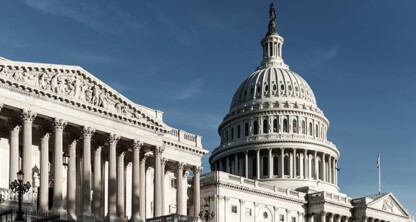In 2005, Dr. Larry Perlman left his career practicing internal medicine to pursue his desire to become an attorney. In his legal practice, Larry now advises clients on a wide array of personnel-related matters involving compliance with federal and state labor and employment laws. He assists clients with a variety of day-to-day human resources issues, such as employee discipline, employee leave, wage and hour questions, and disability accommodation. Larry is a partner in the firm’s Labor & Employment Practice.
In addition to his counseling role, Larry also regularly represents employers in state and federal courts throughout the nation, as well as in administrative agencies such as the EEOC and Department of Labor. He handles claims involving employment discrimination and harassment under federal and state law (ADA, FMLA, ADEA, Title VII), as well as common law tort and contract actions and wage and hour disputes.
He also handles all the items needed to get a workforce up and running, whether that be in the context of startups, mergers and acquisitions, on-shoring to the United States, or established companies’ growth in new directions. This includes executive and other employment contracts, commission plans, all manner of policy and procedure documents, and strategic decision-making regarding workforce pay and classification issues. On the other side of the employment life cycle, he provides counsel as to terminations, reductions-in-force, investigation of employee complaints, and non-competition concerns.
Telemedicine and Health Care
While Larry advises clients in a wide variety of industries, given his previous experience as a physician, he provides clients in the health care space with unique insights and perspectives. His representations run the gamut, including individual providers, multispecialty practices, large health systems, and all manner of affiliated entities.
Larry is as a member of the firm’s Telemedicine and Digital Health Industry Team, advising on the unique and novel employment issues in broadly-dispersed remote clinical workforces.
“A market leader in telemedicine issues. This is the Dream Team.”
Chambers USA: America’s Leading Business Lawyers (2020, 2021)
He handles matters such as:
- Federal and state best practices on engaging clinicians as employees vs independent contractors.
- Distributed clinician staffing models and laws on work allocation and contracting.
- Medical staffing company registration/licensing requirements.
- State and local employee pay and leave requirements across multiple jurisdictions.
- Multistate restrictive covenants, proprietary information agreements, and other tools to protect intellectual property and patient relationship interests.
- Collaborating on human resources best practices when dealing with a highly skilled workforce who in many occasions have never met their fellow team members.
Representative Experience
- Successful litigation of unpaid student intern FLSA claims, including summary judgment in three federal district court matters, defeating a consolidated appeal of those cases to the Eleventh Circuit, and defeating a petition for certiorari to the United States Supreme Court.
- Obtaining summary judgment in the U.S. District Court for the Southern District of Texas in a high-value disability discrimination case involving a compelled medical examination of an employee suffering from an eating disorder.
- Obtaining a worldwide injunction prohibiting a former employee from directly competing against our client, in violation of the parties non-compete agreement.
- Federal court litigation of a “secondary boycott” claim in the context of a union’s longstanding corporate campaign against a Fortune 500 company.
Awards and Recognition
- Selected by his peers for inclusion in The Best Lawyers in America® in the field of Labor and Employment (2023-2024)
- Recognized in Chambers USA: America’s Leading Lawyers for Business in the practice area of Labor & Employment (2020-2021)
American Telemedicine Association Nexus 2025

Trump Administration Provides Some Guidance on DEI Programs

President Trump Ends Affirmative Action Requirements for Federal Contractors

Trump Orders Hiring Freeze and Return to Work for Federal Employees

President Trump’s “Rescission” Executive Order

